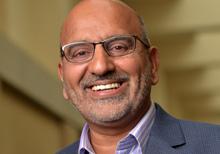Religious and secular traditions are both historical and discursive. By this, I mean that they develop over time in response to internal and external debates, and they react to contestations and pressures.
Because of this historicity and discursivity of religious and secular traditions, we should be mindful of our human fallibility. We are limited in our capacities to render a full and final conception of something as complex as the human person.
Such epistemological humility is often missing from both secular and religious accounts of the human person. Exegetes of these traditions are embedded within certain social imaginaries and it is through these frames that they engage the resources of their tradition. By calling for discursivity, I mean to stress the internal pluralities within traditions, pluralities that are at times in tensions with elite and official articulations of norms. I also mean to highlight ways of negotiating competing values and influences, as well as allowing extra-traditional resources (such as human rights) to influence processes of self-interrogation and innovation from within the tradition. Rather than fixating on the authority of past authorities and their social imaginaries, the discursive approach negotiates conceptions of the human person by way of historicizing and complexly rereading the tradition.
The poetry of Muhammad Iqbal provides one entry point to this modest epistemological contention with the question of the sources authorizing the human person. Iqbal believed that the Qur’an invites readers to full self-consciousness, to a spirituality that is deeply embedded in human self-realization. For Iqbal, to realize one’s selfhood is akin to one’s resurrection.
Turning to my call for epistemological humility and for discursivity clearly raises challenges to secular scientism as well as related secular reductive accounts of the human person. There is an overlap in my position with the position pursued by my colleagues Charlie Camosy and Maura Ryan. My position, however, also challenges the inclination of some religious respondents to contend with this type of secularity by offering a reactionary reification of past religious authorities by deploying past social imaginaries as a panacea to the present. I am agnostic about such mechanistic approaches. I will be more comfortable with a deep and organic discursive engagement with the past as I do in my book, Ghazali and the Poetics of Imagination.
This line of critical engagement with the past opens up the possibility for certain forms of self-interrogation on the part of religious traditions. Accordingly, the operative mode in which contending with modernities proceeds is not antagonistic, but rather one that is potentially mutually transformative, in terms of both religious and secular discursive traditions. Talal Asad in his work clearly acknowledges this kind of mutual transformation.
This mutually transformative angle likewise facilitates the related possibility of interrogating religious resources as more than a countercultural force for good. Often religious discourses stand on the margins of ever-increasing mechanization and autonomization of the person within hegemonic secular discourses driven by economistic discursivities and their related social imaginaries. This secular and reductive challenge requires a response from religious traditions that is non-reactionary. This lends itself to a contextualized hermeneutical analysis that is internally consistent and historically relevant and that relates to norms of pluralism and human rights as a cross-cultural discursive secular tradition.
Viewing religious and secular traditions historically and discursively requires that we engage the normativity of secularist humanisms and their interpretations of human flourishing and self-fulfillment. By pursuing this line of discursivity we then have a better possibility of developing more robust normative accounts that engage not only with the riches of our religious traditions but also profit and better understand the plural but normatively informed commitments of our secular interlocutors.

